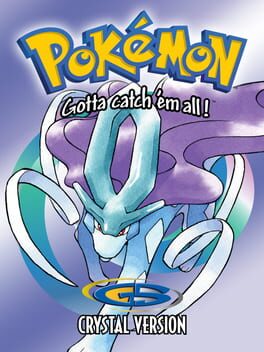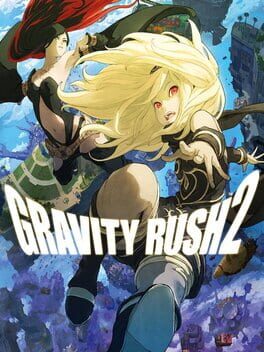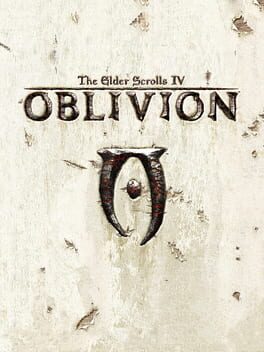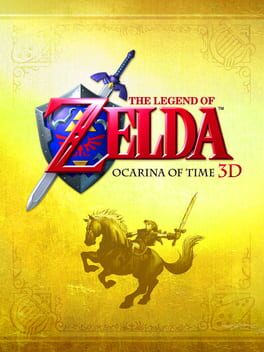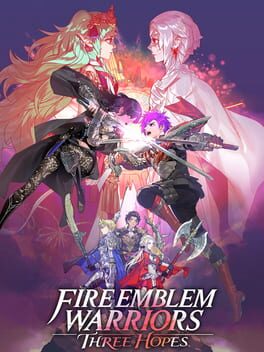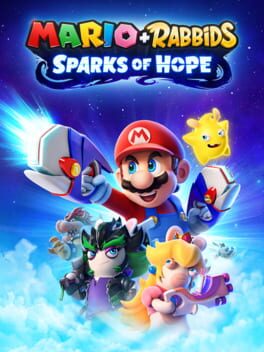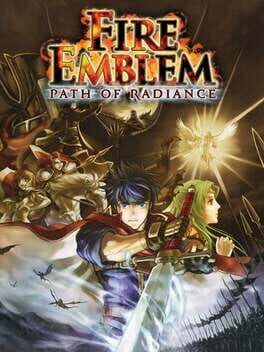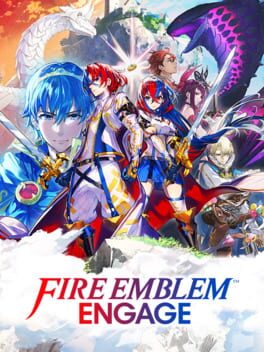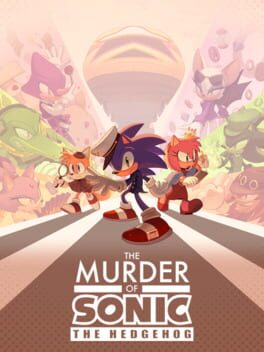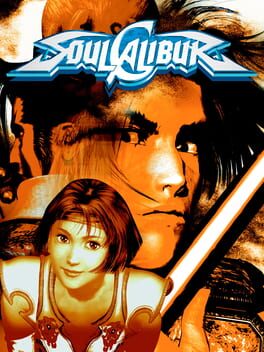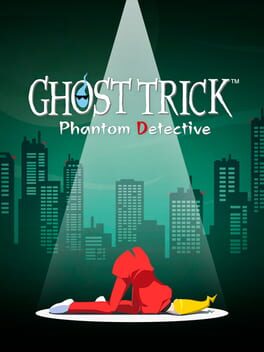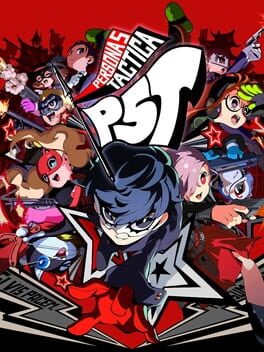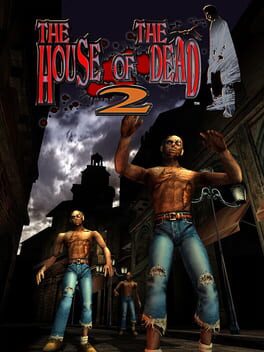Stephen_Hilger
I've enjoyed pretty much every mainline Pokémon game, but Crystal remains my favorite experience. The jump from Kanto to Johto introduced the day & night cycle, breeding, dark and steel types, animated sprites, and an internal clock that utilized all the power Game Boy Color had to offer.
The region of Johto itself still feels the most lived in out of all the Pokémon games, largely thanks to the setting matching the time of the player. Turning the game on early in the morning and seeing the orange hue over the newly colorful setting is extremely immersive.
The story itself is also much more grounded compared to the rest of the series. You still take out Team Rocket (again) but otherwise the game actually gets close to what an everyday life in the world of Pokémon would feel like. Legendaries exist, and while they feel properly mythical, they're also connected to the real world. You have to track and follow the legendary dogs through the grass and know when the legendary birds will show. It's another part of your schedule.
The third and fourth generation of games refined the combat, and others improved multiplayer and end-game content, but nothing quite matches the warm and cyclical vibe of Crystal. It's not about finishing the game, the elite four, or catching them all. It's about what small moments the day you're playing has to offer.
The region of Johto itself still feels the most lived in out of all the Pokémon games, largely thanks to the setting matching the time of the player. Turning the game on early in the morning and seeing the orange hue over the newly colorful setting is extremely immersive.
The story itself is also much more grounded compared to the rest of the series. You still take out Team Rocket (again) but otherwise the game actually gets close to what an everyday life in the world of Pokémon would feel like. Legendaries exist, and while they feel properly mythical, they're also connected to the real world. You have to track and follow the legendary dogs through the grass and know when the legendary birds will show. It's another part of your schedule.
The third and fourth generation of games refined the combat, and others improved multiplayer and end-game content, but nothing quite matches the warm and cyclical vibe of Crystal. It's not about finishing the game, the elite four, or catching them all. It's about what small moments the day you're playing has to offer.
2017
Gravity Rush 2 is a game that absolutely shouldn't work (and often doesn't work) but is carried and propelled by a great lead, an immersive world, and a thrilling central mechanic.
Our hero, Kat, has a superpower that controls the direction gravity pulls her. Essentially, she can fly by falling. It's an abstract concept that takes some getting used to, but it quickly becomes the selling point of the game and remains one of my favorite traversal mechanics.
A big reason for the "flight" mechanic's success is the verticality of the world. The main city in the sky is divided into three main areas, and it takes a serious amount of time to get around. The upper islands where the ultra-rich live are through layers and layers of clouds, and the lower decks (where most people live) can only be visited by falling from tremendous heights. This might sound like an issue, but it's always a joy to fly around, and the distance between places adds a lot of feeling and meaning to the world itself.
The best plot beats require Kat to travel around great distances with a pressing goal. An apt comparison would be the urgency Peter Parker feels in Marvel's Spider-Man when he's tasked with traveling across Manhattan to save someone, only to be immediately called elsewhere. Kat shares Peter's routine of helping everyone they meet, which leads to plenty of high stakes battles and events, but also lower stakes moments like delivering newspapers or helping a family reunite.
I adore the more grounded scenes of the game's story because those moments allow the characters and the setting to shine. Without spoiling: I will say the main plot begins wonderfully and ends completely off the rails, which is a bit disappointing. But that being said, even the story's weaker moments didn't undo the more successful ones.
Playing this game is also bittersweet because it seems very unlikely we'll ever see Gravity Rush 3. But whether or not that day ever comes, this game remains a hidden gem that is routinely on sale for less than $20. Give it a shot!
Our hero, Kat, has a superpower that controls the direction gravity pulls her. Essentially, she can fly by falling. It's an abstract concept that takes some getting used to, but it quickly becomes the selling point of the game and remains one of my favorite traversal mechanics.
A big reason for the "flight" mechanic's success is the verticality of the world. The main city in the sky is divided into three main areas, and it takes a serious amount of time to get around. The upper islands where the ultra-rich live are through layers and layers of clouds, and the lower decks (where most people live) can only be visited by falling from tremendous heights. This might sound like an issue, but it's always a joy to fly around, and the distance between places adds a lot of feeling and meaning to the world itself.
The best plot beats require Kat to travel around great distances with a pressing goal. An apt comparison would be the urgency Peter Parker feels in Marvel's Spider-Man when he's tasked with traveling across Manhattan to save someone, only to be immediately called elsewhere. Kat shares Peter's routine of helping everyone they meet, which leads to plenty of high stakes battles and events, but also lower stakes moments like delivering newspapers or helping a family reunite.
I adore the more grounded scenes of the game's story because those moments allow the characters and the setting to shine. Without spoiling: I will say the main plot begins wonderfully and ends completely off the rails, which is a bit disappointing. But that being said, even the story's weaker moments didn't undo the more successful ones.
Playing this game is also bittersweet because it seems very unlikely we'll ever see Gravity Rush 3. But whether or not that day ever comes, this game remains a hidden gem that is routinely on sale for less than $20. Give it a shot!
Like the Bluepoint remake of Shadow of the Colossus, Ocarina of Time 3D is the type of remake that is mostly interested in preserving the original work. There is an extremely delicate balance between upgrading the visuals and preserving the charm of the N64 classic, and this game strikes that middle ground perfectly. As someone who plays Ocarina of Time annually, I feel pretty strongly this 3DS remake is the best way to play the game-- especially if it's your first time.
This game exceeded my expectations in pretty much every way.
Narratively, I don't think it will carry much weight if you don't have a strong attachment to the cast of Three Houses. But if you are a big fan of FE3H (as I am), it's a blast to see these characters again.
The main plot is kind of a mess. I played Golden Deer and, without spoiling, there are some really cool ideas explored in this "what if?" storyline but none of them really come together. And while I appreciate Three Hopes not wanting to retread established plot beats of Three Houses -- the pacing is SO fast we don't get appropriate buildup or context for many moments. This didn't stop me from enjoying the Golden Deer navigating a new scenario, but I think this story could've been just as powerful as Three Houses with another draft or two.
Mechanically, this is the most I've enjoyed the Musou genre. Like P5 Strikers, this feels more like a collaboration than just a Warriors game with Fire Emblem characters. While it plays somewhat traditionally, giving units orders scratches the tactics itch. And because every character plays so uniquely, combat rarely gets old.
The camp (Three Hopes' Monastery equivalent) is a blast to revisit, and the loop of doing missions to further upgrade the camp is the main pull of the game. There are also a lot of QoL and UI improvements in Three Hopes that I would love to see folded into the mainline series.
Overall, this game is a clever way to give Three Houses a sequel. There are a lot of cool ideas explored in the plot, and some great support scenes between characters who didn't have them in Three Houses. Mechanically, it feels like a fresh take on a very familiar genre, and also introduces ideas that I think FE as a series can benefit from.
This game may be tailor-made for fans, but as a big fan of this series, it's fun to indulge.
Narratively, I don't think it will carry much weight if you don't have a strong attachment to the cast of Three Houses. But if you are a big fan of FE3H (as I am), it's a blast to see these characters again.
The main plot is kind of a mess. I played Golden Deer and, without spoiling, there are some really cool ideas explored in this "what if?" storyline but none of them really come together. And while I appreciate Three Hopes not wanting to retread established plot beats of Three Houses -- the pacing is SO fast we don't get appropriate buildup or context for many moments. This didn't stop me from enjoying the Golden Deer navigating a new scenario, but I think this story could've been just as powerful as Three Houses with another draft or two.
Mechanically, this is the most I've enjoyed the Musou genre. Like P5 Strikers, this feels more like a collaboration than just a Warriors game with Fire Emblem characters. While it plays somewhat traditionally, giving units orders scratches the tactics itch. And because every character plays so uniquely, combat rarely gets old.
The camp (Three Hopes' Monastery equivalent) is a blast to revisit, and the loop of doing missions to further upgrade the camp is the main pull of the game. There are also a lot of QoL and UI improvements in Three Hopes that I would love to see folded into the mainline series.
Overall, this game is a clever way to give Three Houses a sequel. There are a lot of cool ideas explored in the plot, and some great support scenes between characters who didn't have them in Three Houses. Mechanically, it feels like a fresh take on a very familiar genre, and also introduces ideas that I think FE as a series can benefit from.
This game may be tailor-made for fans, but as a big fan of this series, it's fun to indulge.
2007
Persona 3 FES is a tough game to recommend. The combat is unforgiving, the plot has a pretty slow start, and it's fairly easy to completely prevent progress in the game by saving too close to a boss you didn't grind enough for. Big Persona fans will admire this game for setting the modern foundation and for its stylish presentation and incredible soundtrack. But for many, the admiration will stop there. At least, this is how I felt about P3 until finally finishing the game earlier this year.
This game really comes together in its finale, which is fitting for a game entirely about death and the end of things. While Persona 4 and 5 have similar plot structure, both of those games play out more like seasons of a TV show. P3 is a much more singular experience, and I found the game's ending left a far larger impact on me than I expected.
The Death card in Tarot (something all Persona games pull heavily from) is symbolically more about change than specifically death itself, and Persona 3 seems to know this. No one character in this game is the same person by the plot's conclusion. We see their arcs play out in both cutscenes and in combat, as well as their dialogue in battle and the way they greet us when we return to the dormitory -- our de facto home.
I won't spoil the ending of this game, but it's maybe one of the most beautiful things I've seen in a video game. P3 doesn't have the gall to say what the meaning of life is, but it makes a case that our legacy is composed of seemingly innocuous moments shared with others. People we have heard and helped -- even if we didn't realize that's what we were doing. It is these moments that have meaning -- even if they're only for a little while.
This game really comes together in its finale, which is fitting for a game entirely about death and the end of things. While Persona 4 and 5 have similar plot structure, both of those games play out more like seasons of a TV show. P3 is a much more singular experience, and I found the game's ending left a far larger impact on me than I expected.
The Death card in Tarot (something all Persona games pull heavily from) is symbolically more about change than specifically death itself, and Persona 3 seems to know this. No one character in this game is the same person by the plot's conclusion. We see their arcs play out in both cutscenes and in combat, as well as their dialogue in battle and the way they greet us when we return to the dormitory -- our de facto home.
I won't spoil the ending of this game, but it's maybe one of the most beautiful things I've seen in a video game. P3 doesn't have the gall to say what the meaning of life is, but it makes a case that our legacy is composed of seemingly innocuous moments shared with others. People we have heard and helped -- even if we didn't realize that's what we were doing. It is these moments that have meaning -- even if they're only for a little while.
I'm still fairly early on, but I can see why so many consider this the peak of Fire Emblem. I've always admired the GBA entries for their presentation and charm, but personally, I prefer the narrative experience found in Three Houses. Path of Radiance feels like the perfect bridge between the two; a strong focus on a tighter ensemble and an epic fantasy story with very personal stakes. I love that Ike begins the game as an average-at-best unit-- it makes his bravery feel very real because we know he's not the strongest (yet). The gamecube vibes here are immaculate as well. I imagine once I am finished, this will be one of my favorites.
2023
Ugh...
Okay-- so, on one hand, this game plays extremely well. Engage's interpretation of the weapon triangle and the titular "Engage" mechanic make combat a blast. Maps are cleverly designed and the battle animations are incredible. The hub world is also fun, and overall, the game has a very rewarding loop that's hard to walk away from.
Unfortunately, I actively dislike everything else. The story is rough and the supports feel AI written. I went in with low expectations given many reviews explicitly stated this game was more focused on tactics, and I still found myself feeling disappointed by the narrative.
I know very well that not every FE game prioritizes story, but there's absolutely a way to have a lighter stakes journey that doesn't take itself too seriously. Instead, we get a plot that echoes the beats of an epic fantasy tale without giving us any reason to care.
Despite my issues with Engage, I am still enjoying the game. My advice is to skip the cutscenes, give everyone sunglasses, and have fun with the incredible tactics.
TLDR: Help, I miss Garegg Mach so much...
Okay-- so, on one hand, this game plays extremely well. Engage's interpretation of the weapon triangle and the titular "Engage" mechanic make combat a blast. Maps are cleverly designed and the battle animations are incredible. The hub world is also fun, and overall, the game has a very rewarding loop that's hard to walk away from.
Unfortunately, I actively dislike everything else. The story is rough and the supports feel AI written. I went in with low expectations given many reviews explicitly stated this game was more focused on tactics, and I still found myself feeling disappointed by the narrative.
I know very well that not every FE game prioritizes story, but there's absolutely a way to have a lighter stakes journey that doesn't take itself too seriously. Instead, we get a plot that echoes the beats of an epic fantasy tale without giving us any reason to care.
Despite my issues with Engage, I am still enjoying the game. My advice is to skip the cutscenes, give everyone sunglasses, and have fun with the incredible tactics.
TLDR: Help, I miss Garegg Mach so much...
Wasn't prepared for an April Fool's Day Sonic murder mystery to genuinely be one of my favorite games this year. I really think this could be the start of a great spin-off series! Having the platformer mini-game be a stand-in for deduction was a bit of a miss, but otherwise this was really fun and surprisingly heartfelt. I loved it. And it's free!
1998
A friend of mine recently threw a party where we had the Dreamcast on in the living room. Most people politely tolerated the console's presence; they would come in, watch 5 minutes of a game, ask how old it was, and then leave.
But as soon as we switched to SoulCalibur, something changed. Everyone's passing curiosity turned into WWE arena levels of emotional investment. We passed the controllers around to would-be champions. We yelled. We cried. Complete strangers complimented my Lizardman's blocking ability. It was beautiful.
While I'd annoyingly argue that SoulCalibur II is the peak of the series, SoulCalibur (1?) remains one of the most transportive games on the Dreamcast. Sega's pitch of having the arcade at home feels fully crystalized when choosing your champion over the iconic orchestral character select theme.
While it's hard to remember the days when 3D fighters were being pitched as the next big thing, when you're playing SoulCalibur, that nostalgic excitement for a prospective future remains.
But as soon as we switched to SoulCalibur, something changed. Everyone's passing curiosity turned into WWE arena levels of emotional investment. We passed the controllers around to would-be champions. We yelled. We cried. Complete strangers complimented my Lizardman's blocking ability. It was beautiful.
While I'd annoyingly argue that SoulCalibur II is the peak of the series, SoulCalibur (1?) remains one of the most transportive games on the Dreamcast. Sega's pitch of having the arcade at home feels fully crystalized when choosing your champion over the iconic orchestral character select theme.
While it's hard to remember the days when 3D fighters were being pitched as the next big thing, when you're playing SoulCalibur, that nostalgic excitement for a prospective future remains.
2020
Immediately one of the best RPG's I've ever played. Captures the indescribable magic of an in-person dnd session. Feels like everything I love about Dragon Age meshed with Larian's strengths as a developer--and it's sliiiiiightly more approachable than Divinity given the more intuitive engine of DnD 5e. I love this game.
Playing this for the second time and yelling out loud whenever there's a blatant piece of foreshadowing I completely missed my first playthrough.
Ghost Trick is a complete joy. You'll laugh, you'll cry, you'll scream "how was I supposed to know that?" at some of the absurd point and click logic. A must for fans of Ace Attorney and / or narrative adventure games. This game was one of the more impressive looking games on the DS and it still looks amazing on Switch. And getting more powerful speakers for the soundtrack is a blessing.
Ghost Trick is a complete joy. You'll laugh, you'll cry, you'll scream "how was I supposed to know that?" at some of the absurd point and click logic. A must for fans of Ace Attorney and / or narrative adventure games. This game was one of the more impressive looking games on the DS and it still looks amazing on Switch. And getting more powerful speakers for the soundtrack is a blessing.
2023
Once you get past the jump scare of this being a Rabbids-like, this game has a lot of really interesting ideas on display.
It's notably light on story, and I think the promise of Persona + tactics might set expectations higher than this game is aiming. But so far, I've found it really charming and fun!
I hope Atlus keeps experimenting with this mashup of genre because I could see this growing into a great spin-off series.
It's notably light on story, and I think the promise of Persona + tactics might set expectations higher than this game is aiming. But so far, I've found it really charming and fun!
I hope Atlus keeps experimenting with this mashup of genre because I could see this growing into a great spin-off series.
